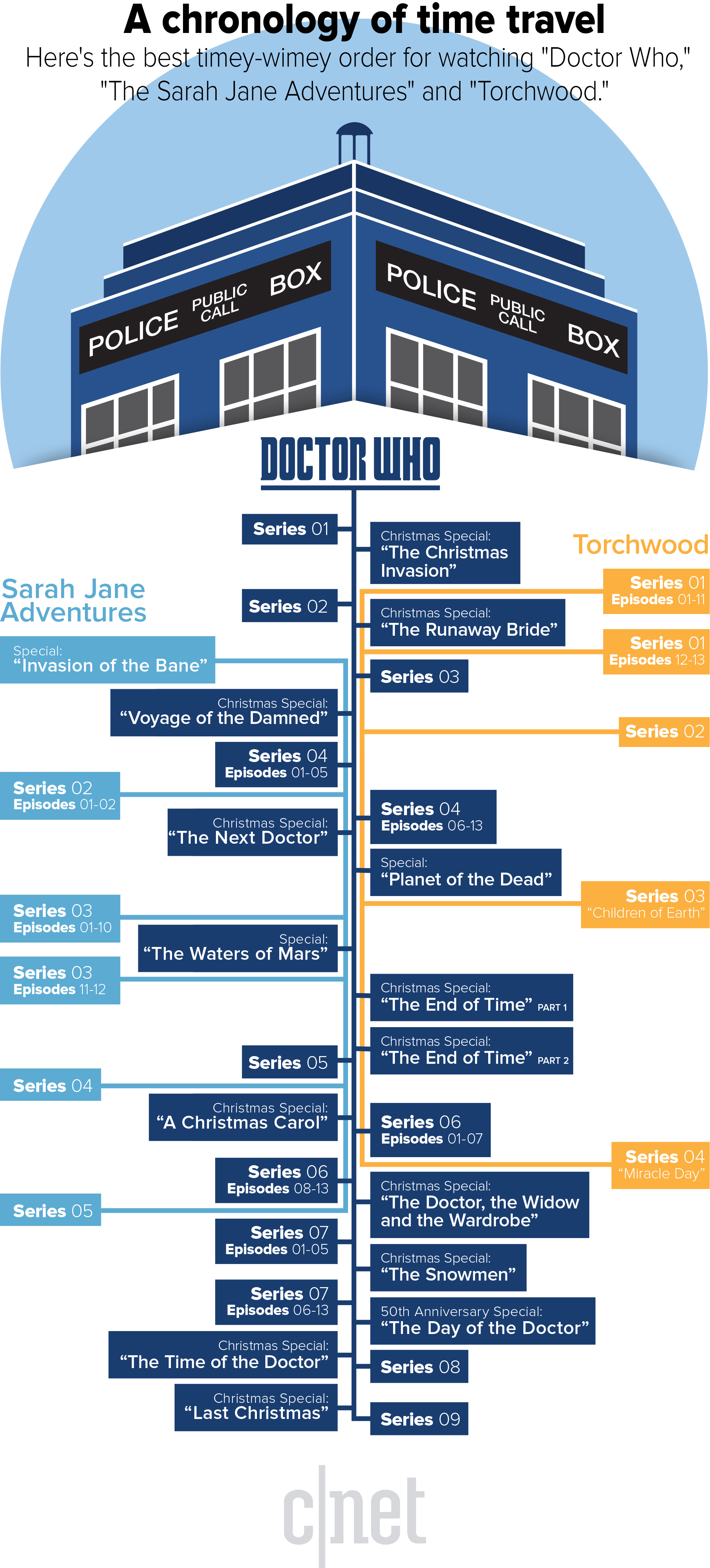
Again though, taking amusement in its less stellar moments is part of the appeal, especially for hardcore fans to the point where you could describe Doctor Who as " Narm Charm: The Show" and as such you can find a good amount of ribbing on this wiki's various pages regarding Doctor Who, done by fans, for fans, and all in good fun.

#Doctor who specials list series#
That's not to say that the Revival Series doesn't have its share of snark-worthy moments, but the Classic Series is where it's most prominent. This is especially true for the first 26 seasons, whose far lower budget and constrained shooting schedules could lend to some particularly amusing blunders in terms of effects, acting, writing, set design, etc.

It's also worth noting that a significant amount of the show's appeal lies in its remarkable ability to veer between being a genuine masterpiece of British television to being some of the most ridiculous buffoonery ever put onto BBC airwaves oftentimes within the same episode.
#Doctor who specials list plus#
In addition, the Royal Mail honoured the show's anniversary with a set of stamps, one for each Doctor (and the TARDIS) plus the show's villains.

note Normally, we Brits and the Queen are above pettiness. It is also notable that Michael Grade, the BBC Controller when the show originally went off the air in 1989 and a vocal critic of the classic series (thus leading him to be the one most commonly blamed for cancelling Doctor Who), is the only BBC Controller not to have received a knighthood entirely coincidentally, we're sure. Even subtracting the 16-year "interregnum", the show still holds the record of longest-running English-language sci-fi series, with its nearest rival being the 12-season run of fellow UK series Red Dwarf.ĭoctor Who is a British institution and considered a key part of British culture: even The Queen herself is a fan, and threw the show a birthday party in her palace for its 50th anniversary in 2013. The original show lasted 26 "seasons", whereas the new annual runs of episodes are called "series": officially, the show went from Season 26 to Series 1, and so on despite this, it's important to note, once again, that the Revival Series is still very much a continuation of the Classic Series, though it doesn't rely on viewer familiarity of the show's continuity with its predecessor, allowing it to remain accessible to newcomers as well as to longtime fans. As such, 2013 marked the show's 50th anniversary. The Revival Series has radically upgraded production values (the original series is notorious for its often rubbery monster prosthetics and bad Chroma Key), shorter story arcs but much more continuity throughout, and deeper Character Development and romance to the series than what the first 24 seasons depicted note deeper character exploration began with Seasons 25&26, but the Revival Series is where this greater elaboration really started kicking in. This new " Revival Series" is a direct continuation of the 1963-1989 "Classic Series", rather than being a Continuity Reboot, and the first Doctor depicted here, the Ninth Doctor, was a successor to the previous eight incarnations. It is possible more would have been made, but a very exciting development on the television front was made in 2005, as the BBC regenerated the show. Throughout the remainder of the decade, The BBC made attempts to relaunch the series as a theatrical film, to no avail, and between 20 produced a series of webcasts which it considered in every way an official continuation of the series (insofar as the Beeb ever indicates what is and isn't canon). This was created as a pilot for an American-led revival, but although the Eighth Doctor became part of the continuity as a whole, no actual return of the series resulted due to the film's poor ratings in the United States (it was, however, a success in the UK).
#Doctor who specials list movie#
In the "Wilderness Years" when Doctor Who was off the air (1990-2004), independent productions ranging from direct-to-video companion adventures minus the Doctor, stories about monsters from the series, spoofs, In Name Only stories featuring former Doctors on the show, licence-restricted stories featuring no familiar characters from the series, audio releases, and anniversary specials technically kept the franchise alive.Ī Made-for-TV Movie aired in 1996, in which the Seventh Doctor returned at the end of his life and regenerated into the Eighth. The show originally ran from 1963 to 1989 (with an 18-month hiatus in 1985-6 caused by Executive Meddling, during which it "rested" and saw only a radio drama air), before being pulled from the airwaves after the conclusion of its 26th season the BBC has always insisted that the show was merely placed on hiatus, but the general understanding is that it had actually been cancelled.


 0 kommentar(er)
0 kommentar(er)
